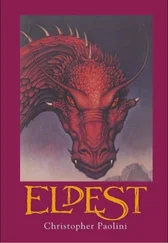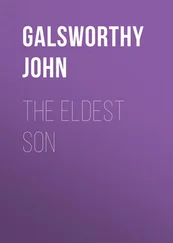“I had no choice. When they took Katrina—” Roran’s voice broke. “I could either give up and die, or I could try to escape Galbatorix’s trap, no matter the cost.” He fixed his burning eyes on Eragon. “I have lied and burned and slaughtered to get here. I no longer have to worry about protecting everyone from Carvahall; the Varden will see to that. Now I have only one goal in life, to find and rescue Katrina, if she’s not already dead. Will you help me, Eragon?”
Reaching over, Eragon grabbed his saddlebags from the corner of the tent — where the Varden had deposited them — and removed a wooden bowl and the silver flask of enchanted faelnirv Oromis had given him. He took a small sip of the liqueur to revitalize himself and gasped as it raced down his throat, making his nerves tingle with cold fire. Then he poured faelnirv into the bowl until it formed a shallow pool the width of his hand.
“Watch.” Gathering up his burst of new energy, Eragon said, “Draumr kópa.”
The liqueur shimmered and turned black. After a few seconds, a thin key of light appeared in the center of the bowl, revealing Katrina. She lay slumped against an invisible wall, her hands suspended above her with invisible manacles and her copper hair splayed like a fan across her back.
“She’s alive!” Roran hunched over the bowl, grasping at it as if he thought he could dive through the faelnirv and join Katrina. His hope and determination melded with a look of such tender affection, Eragon knew that only death could stop Roran from trying to free her.
Unable to sustain the spell any longer, Eragon let the image fade away. He leaned against the wall of the tent for support. “Aye,” he said wearily, “she’s alive. And chances are, she’s imprisoned in Helgrind, in the Ra’zac’s lair.” Eragon grasped Roran by the shoulders. “The answer to your question, brother, is yes. I will travel to Dras-Leona with you. I will help you rescue Katrina. And then, together, you and I shall kill the Ra’zac and avenge our father.”
END OF BOOK TWO
THE STORY WILL CONTINUE IN BOOK THREE OF INHERITANCE
PRONUNCIATION GUIDE
AND GLOSSARY ON THE ORIGIN OF NAMES
To the casual observer, the various names an intrepid traveler will encounter throughout Alagaësia might seem but a random collection of labels with no inherent integrity, culture, or history. However, as with any land that has been repeatedly colonized by different cultures — and in this case, different races — Alagaësia quickly accumulated layers of names from the elves, dwarves, humans, and even Urgals. Thus, we can have Palancar Valley (a human name), the Anora River and Ristvak’baen (elven names), and Utgard Mountain (a dwarf name) all within a few square miles of each other.
While this is of great historical interest, practically it often leads to confusion as to the correct pronunciation. Unfortunately, there are no set rules for the neophyte. Each name must be learned upon its own terms, unless you can immediately place its language of origin. The matter grows even more confusing when you realize that in many places the spelling and pronunciation of foreign words were altered by the resident population to conform to their own language. The Anora River is a prime example. Originally anora was spelled äenora , which means broad in the ancient language. In their writings, the humans simplified the word to anora , and this, combined with a vowel shift wherein äe (ay-eh) was said as the easier a (uh), created the name as it appears in Eragon’s time.
To spare readers as much difficulty as possible, the following list is provided, with the understanding that these are only rough guidelines to the actual pronunciation. The enthusiast is encouraged to study the source languages in order to master their true intricacies.
PRONUNCIATION
Aiedail — AY-uh-dale
Ajihad — AH-zhi-hod
Alagaësia — al-uh-GAY-zee-uh
Arya — AR-ee-uh
Carvahall — CAR-vuh-hall
Dras-Leona — DRAHS lee-OH-nuh
Du Weldenvarden — doo WELL-den-VAR-den
Ellesméra — el-uhs-MEER-uh
Eragon — EHR-uh-gahn
Farthen Dûr — FAR-then DURE ( dure rhymes with lure )
Galbatorix — gal-buh-TOR-icks
Gil’ead — GILL-ee-id
Glaedr — GLAY-dur
Hrothgar — HROTH-gar
Islanzadí — iss-lan-ZAH-dee
Jeod — JODE (rhymes with code )
Murtagh — MUR-tag ( mur rhymes with purr )
Nasuada — nah-SOO-ah-dah
Nolfavrell — NOLL-fah-vrel ( noll rhymes with toll )
Oromis — OR-uh-miss
Ra’zac — RAA-zack
Saphira — suh-FEAR-uh
Shruikan — SHREW-kin
Sílthrim — SEAL-thrim ( síl is a hard sound to transcribe; it’s made by flicking the tip of the tongue off the roof of the mouth.)
Teirm — TEERM
Trianna — TREE-ah-nuh
Tronjheim — TRONJ-heem
Urû’baen — OO-roo-bane
Vrael — VRAIL
Yazuac — YAA-zoo-ack
Zar’roc — ZAR-rock
THE ANCIENT LANGUAGE
adurna — water
Agaetí Blödhren — Blood-oath Celebration
Aiedail — The Morning Star
Argetlam — Silver Hand
Atra esterní ono thelduin/Mor’ranr lífa unin hjarta onr/Un du evarínya ono varda. — May good fortune rule over you/Peace live in your heart/And the stars watch over you.
Atra guliä un ilian tauthr ono un atra ono waíse skölir fra rauthr. — May luck and happiness follow you and may you be a shield from misfortune.
Atra nosu waíse vardo fra eld hórnya. — Let us be warded from listeners.
Bjartskular — Brightscales
blöthr — halt; stop
Brakka du vanyalí sem huildar Saphira un eka! — Reduce the magic that holds Saphira and me!
brisingr — fire
Dagshelgr — Hallowed Day
draumr kópa — dream stare
Du Fells Nángoröth — The Blasted Mountains
Du Fyrn Skulblaka — The Dragon War
Du Völlar Eldrvarya — The Burning Plains
Du Vrangr Gata — The Wandering Path
Du Weldenvarden — The Guarding Forest
dvergar — dwarves
ebrithil — master
edur — a tor or prominence
Eka fricai un Shur’tugal. — I am a Rider and friend.
elda — a gender-neutral honorific of great praise
Eyddr eyreya onr! — Empty your ears!
fairth — a picture taken by magical means
finiarel — an honorific for a young man of great promise
Fricai Andlát — death friend (a poisonous mushroom)
Gala O Wyrda brunhvitr/Abr Berundal vandr-fódhr/Burthro laufsblädar ekar undir/Eom kona dauthleikr... — Sing O white-browed Fate/Of ill-marked Berundal/Born under oaken leaves/To mortal woman...
gánga aptr — to go backward
gánga fram — to go forward
Gath sem oro un lam iet. — Unite that arrow with my hand.
gedwëy ignasia — shining palm
Gëuloth du knífr. — Dull the knife.
haldthin — thornapple
Helgrind — The Gates of Death
hlaupa — run
hljödhr — silent
jierda — break; hit
kodthr — catch
Kvetha Fricai. — Greetings, Friend.
lethrblaka — a bat; the Ra’zac’s mounts (literally, leather-flapper)
letta — stop
Letta orya thorna! — Stop those arrows!
Liduen Kvaedhí — Poetic Script
Losna kalfya iet. — Release my calves.
malthinae — to bind or hold in place; confine
nalgask — a mixture of beeswax and hazelnut oil used to moisten the skin
Osthato Chetowä — the Mourning Sage
Reisa du adurna. — Raise/Lift the water.
rïsa — rise
Sé mor’ranr ono finna. — May you find peace.
Sé onr sverdar sitja hvass! — May your swords stay sharp!
Читать дальше
![Christopher Paolini Eldest [en] обложка книги](/books/223279/christopher-paolini-eldest-en-cover.webp)


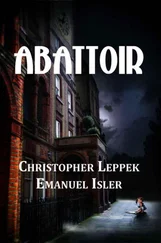
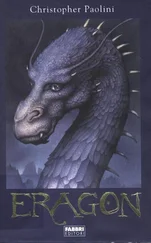
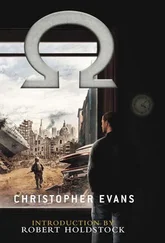
![Christopher Paolini - Brisingr [en]](/books/195528/christopher-paolini-brisingr-en-thumb.webp)
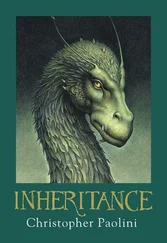
![Christopher Paolini - Eragon [en]](/books/248440/christopher-paolini-eragon-en-thumb.webp)
